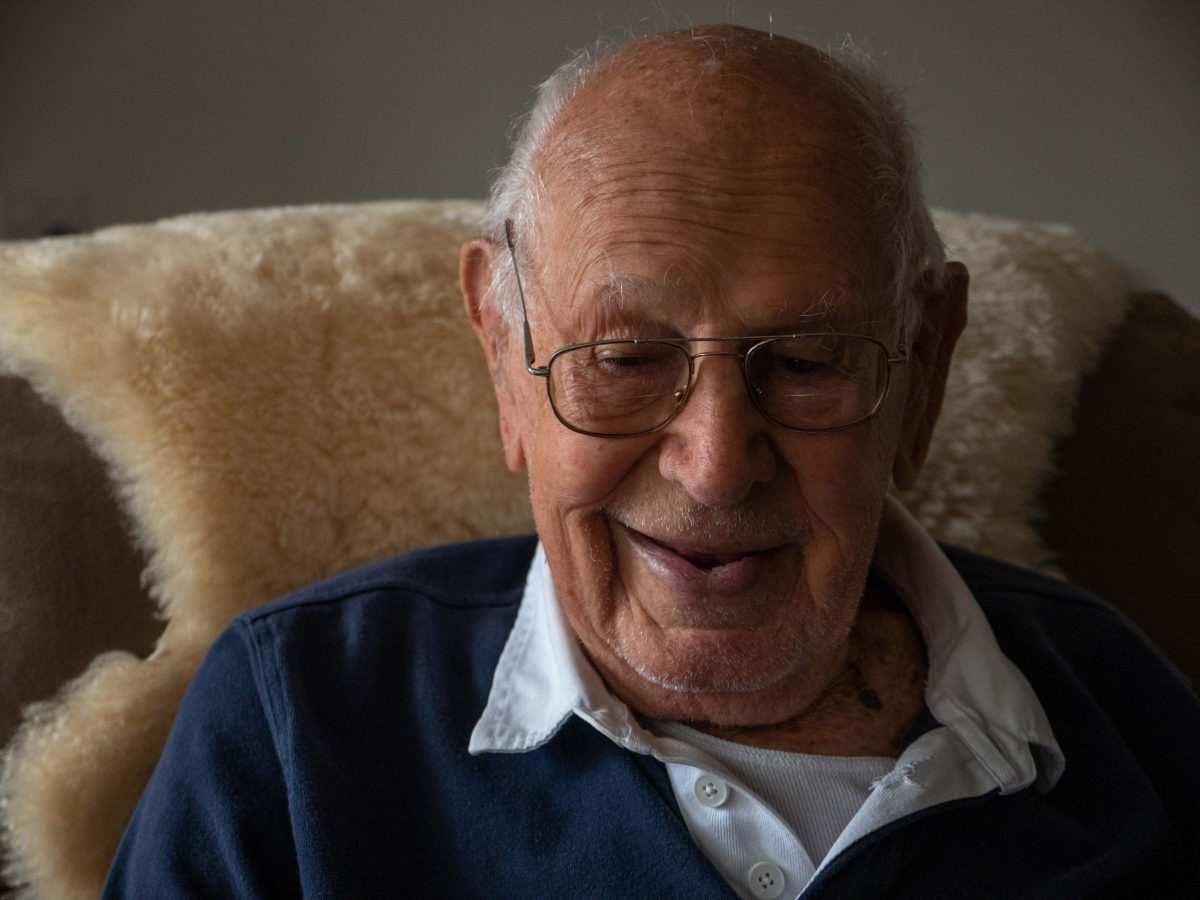Peninsula Villages’ resident Eric Tweedale turns 101 on 5 May and recently sat down with The 100 Project to share his life story as Australia’s oldest living Wallaby.
The former prop and Wallaby #336 has lived through World War II, the Great Depression and more recently the Coronavirus pandemic, but is most known for his career as a Wallaby having accrued ten Test-caps between 1946 and 1949.
Born in Rochdale, England in 1921, Eric emigrated to Australia in 1924 with his parents who were previously working in the Cotton Mills of England. Residing in Merrylands Sydney, Eric enjoyed a good childhood in Australia where at the age of 15, he found Rugby Union and made his first-grade debut against Drummoyne.
Recalling his introduction to Rugby Union, Eric said, “From the day I was born I was meant to be a sports person. I wasn’t a good student. I went and got a job with Anthony Hordern’s that paid 12 shillings and threepence which is just over $1.30 a week. It wasn’t until the famous Bill Cerutti approached me and said ‘Have you ever considered Rugby Union’? that I then pursued the sport,” said Eric.
“I had never seen the game played but Bill said ‘well you’re big enough, would you like me to take you over to Parramatta Rugby Union club to see what we can make of you?’ By the time the season was finished I was wrapped in the game. I was a permanent member of the Parramatta club and was one of the youngest members to ever be picked for the rep team,” he explained.
Joining the Royal Australian Navy during World War II, Rugby Union for both Eric and the world was forced to take a break, which ended up lasting eight years. After training with the Royal Australian Navy at Flinders Naval Depot for convoy duty, in 1942 Eric was deployed in Sydney when it was attacked in May by Japanese midget submarines. Eric was then drafted to escorting merchant ships up and down the Australian coast.
His first night out at sea was on board the SS Iron Knight in a convoy of 14 ships, of which one was sunk that night. As a convoy signalman, his role required using Morse code and flags to communicate between the fleets to ensure all ships sailed at the same time. As the war progressed north, he moved to Queensland protecting merchant ships carrying iron ore and coal – primary resources from being destroyed by the Japanese.
“After the war I was delighted to be selected as a Wallaby for the 1946 tour of New Zealand. I was working for a Shell company at the time and I knocked off that day, bought a paper, got on a train, sat down and opened the paper, always starting at the back. There was the team listed in print on the back page of the sport section and there it was my name printed,” continued Eric.
“That tour was a challenge. After the war, half our team was made up of soldiers while the other was new kids off the block. The New Zealand team had been to England and just returned so they were tough and hardy, they were internationally recognised and their passion was so great that it made them a hard team to play against,” added Eric.
Eric was then part of one of the most famous touring teams, the 1947-48 Wallabies, who did not have their line crossed in internationals against Scotland, Ireland, Wales and England. Stand-out performances saw Eric reach the pinnacle of his career when chosen for the third Wallabies tour to the United Kingdom and Europe. He played in four of the five Tests and was also honoured to be selected in the first-ever match for an international team against the Barbarians RUFC.
While Eric has long been recognised as the oldest living Wallaby, his service to the country in the Second World War is less well known, but possibly the most incredible story is that of his reunion with his late partner Enid who also resided at Peninsula Villages.
“While sadly Enid passed last year, Eric and Enid’s remarkable tale is one that will live with us forever at the Village with two halves of a love story separated by more than 60 years,” explained Peninsula Villages CEO, Colin Osborne.
Eric and Enid were engaged to be married in 1942 before Eric joined the navy and fought in World War II. During the three years he was serving, the pair drifted apart and didn’t see each other for many years, both going on to lead separate lives and marry other people. Then one fortuitous day in 2004, Eric was asked to do a favour for a friend and meet a widow at Sydney’s Central Station and look after her for the day ahead of a RSL reunion.
“I asked, ‘What’s her name?’ They said, ‘Enid Wagner, do you know her?’ Know her? I almost married her!,” Eric recalls.
“So we’ve met at the big clock at Central Station and took on from there. Two years later, I lost my second wife Phyllis, so we just ended up together 64 years after we last saw each other.”
The pair’s love story is just one of the fascinating tales Eric recounted to The 100 Project ahead of celebrating his 101st birthday on 5 May this year.
“Sitting down with The 100 Project recently, Peninsula Villages is delighted to celebrate Eric’s 101st birthday, after huge festivities in 2021 for his milestone birthday. This year we are focusing on the wonderful stories Eric has to share with us and those in our wonderful sporting, RSL and local communities,” added Colin Osborne, CEO of Peninsula Villages.
To hear Eric Tweedale’s full interview with visit The 100 Project.
